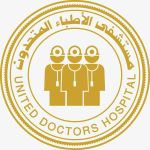
Thirty tips on breastfeeding
Thirty tips on breastfeeding
The Almighty said: (Mothers may nurse their infants for two whole years, for those who desire to complete the nursing-period)
- Breastfeeding should be started from the first hour of birth of the baby.
- The baby should be breastfed “at his request”, i.e. whenever desired, during the day or during the night.
- Avoid using bottles or pacifiers.
- Breast milk provides infants with all the nutrients they need.
- Breast milk is safe and contains antibodies that help protect infants from common childhood illnesses – such as diarrhea and pneumonia.
- Breast milk is available quickly and free of charge.
- Breastfeeding leads to the cessation of menstruation, which is a natural (although unsafe) way to organize births.
- Breastfeeding contributes to reducing the risk of breast cancer in later stages.
- For the prevention of breast cancer … Just breastfeed your baby, breastfeeding a baby for three months is equivalent to taking the well-known medication for prevention of the disease, called tamoxifen, for five years.
- Breastfeeding contributes to reducing the risk of ovarian cancer in later stages.
- Breastfeeding helps women quickly return to their pre-pregnancy weight and reduces obesity rates.
- Adults who were breastfed by their mothers as children are less likely than others to have hypertension and high cholesterol.
- Adults who were breastfed by their mothers as children are less likely than others to suffer from obesity and type 2 diabetes.
- Babies who have been breastfed achieve better results in IQ tests.
- Many families do not have access to clean water for the preparation of formula feeding.
- Formula feedings do not contain the antibodies found in breast milk.
- Children fed with formula-feeding powders may experience malnutrition, as these powders might be mixed with large amounts of water in order to “save” them.
- Frequent breastfeeding contributes to maintaining the supply of breast milk. If the baby is powder-fed, a return to breastfeeding may not be possible due to reduced milk production in the mother’s body.
- WHO recommends that a breastfeeding mother take time off from work after giving birth, in order to be able to rest and breastfeed her baby.
- If breastfeeding women have to work, places that meet the conditions of safety, hygiene and privacy must be provided in the workplace.
- Breastfeeding should not be reduced when supplementation is initiated.
- Supplement foods should be given using a spoon or cup, not a bottle.
- Supplement foods should be clean, safe, and available.
- Young children should be given time to learn to eat solid foods.
- Breast milk contains DHA, omega-3 which are very necessary for the development of the brain and nervous system.
- The availability of Docoahexaenoic acid (DHA) in breast milk may explain the findings of science that breastfed babies had better academic achievement.
- Breast milk also contains the amino acid Taurine, a substance necessary for the development of the fetal brain.
- Breast milk drives the baby’s immune system, and researchers believe this is partly due to the protein in this milk, known as CD14 solute.
- Breastfeeding creates an emotional bond between the newborn and the mother.




